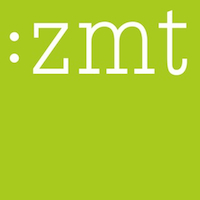Dealing with incorrect translations Thread poster: Mark Weatherall
|
|---|
What is the best approach for dealing with an “official” translation that is clearly incorrect? I’m thinking here about the name of a book, journal article, etc. that has been previously translated and listed in various places, but there is some kind of mistake in the translation.
For example, say a university has translated the name of a course incorrectly as “Politics of People’s Republic of China” instead of “Politics of the People’s Republic of China”, but the incorr... See more What is the best approach for dealing with an “official” translation that is clearly incorrect? I’m thinking here about the name of a book, journal article, etc. that has been previously translated and listed in various places, but there is some kind of mistake in the translation.
For example, say a university has translated the name of a course incorrectly as “Politics of People’s Republic of China” instead of “Politics of the People’s Republic of China”, but the incorrect translation is everywhere on the university’s website, should I just follow the incorrect translation when translating a new document for the university? Or should I correct it? The problem with the latter is that people might not be able to match the translations when searching for the course name. ▲ Collapse
| | | | Lingua 5B 
Bosnia and Herzegovina
Local time: 21:24
Member (2009)
English to Croatian
+ ...
Is the example you listed so major to call it “incorrect”? Yes, they will be able to search it, the search engine will ignore the missing article, as it considers it a minor, insignificant ommission.
| | | | Mark Weatherall 
Taiwan
Local time: 04:24
Member (2013)
Chinese to English
TOPIC STARTER | More major issues | Jul 15, 2024 |
This example is very minor, but what happens if there are more major error(s)? For example, lots of Chinese books and journal articles have badly translated English titles (normally done by the author or publisher). I often want to retranslate them myself, but this raises other potential issues.
| | | | Zea_Mays 
Italy
Local time: 21:24
English to German
+ ...
| talk it over with the client | Jul 15, 2024 |
I would tell the client what the situation is and then discuss the approach with them. A minimal error does not affect search, as Lingua 5B said, provided you don't look for an exact match, but if it changes the meaning of an expression or is completely wrong, of course it should be addressed.
| | |
|
|
|
Peter Motte 
Belgium
Local time: 21:24
Member (2009)
English to Dutch
+ ...
| Completely wrong? | Jul 15, 2024 |
If only the title is translated, and not the book or the article with that title, than the book or article are not available in the target language, and therefore there is no need to stick to the original wrong translation, as the translation doesn't exist anyway. If you can provide a better translation, do so.
But in that case you would have used the original text, so I don't see why you would give a translated title instead of the original title, except to make it more clear to the reade... See more If only the title is translated, and not the book or the article with that title, than the book or article are not available in the target language, and therefore there is no need to stick to the original wrong translation, as the translation doesn't exist anyway. If you can provide a better translation, do so.
But in that case you would have used the original text, so I don't see why you would give a translated title instead of the original title, except to make it more clear to the reader.
It not only the title is translated, but the complete book or article, than there are several questions:
- if the translation of the work is really bad, then why would you use it in the first place? In that case, give your own translation, but keep in mind you actually have to use the original text and also the original title to refer to
- if the translation of the work is good, so that you can use the translation, than also use the translation of the work and do not provide another translation
[Edited at 2024-07-15 11:38 GMT] ▲ Collapse
| | | | | Use common sense | Jul 15, 2024 |
Use common sense. What helps the reader most?
| | | | Kay Denney 
France
Local time: 21:24
French to English
Common sense is such a rarity! We need to find another term for it...
| | | | Lingua 5B 
Bosnia and Herzegovina
Local time: 21:24
Member (2009)
English to Croatian
+ ...
One time someone on forums said how they listed a missing full stop in a 20k translation they reviewed as a major error.
| | |
|
|
|
| Longstanding malaise | Jul 15, 2024 |
Kay Denney wrote:
Common sense is such a rarity! We need to find another term for it...
I suppose as translation, like everything everywhere, becomes increasingly constrained by precedents and procedures, people will get more and more unwilling to simply stick their neck out and trust their instincts.
I wouldn’t mind that on my gravestone: At least he made his own decisions.
| | | | Mark Weatherall 
Taiwan
Local time: 04:24
Member (2013)
Chinese to English
TOPIC STARTER | Which reader? | Jul 15, 2024 |
Christopher Schröder wrote:
Use common sense. What helps the reader most?
There are different readers with different needs. What helps the reader most is not always an easy question to answer.
| | | | Mark Weatherall 
Taiwan
Local time: 04:24
Member (2013)
Chinese to English
TOPIC STARTER | Helping readers | Jul 15, 2024 |
Peter Motte wrote:
If only the title is translated, and not the book or the article with that title, than the book or article are not available in the target language, and therefore there is no need to stick to the original wrong translation, as the translation doesn't exist anyway. If you can provide a better translation, do so.
But in that case you would have used the original text, so I don't see why you would give a translated title instead of the original title, except to make it more clear to the reader.
It not only the title is translated, but the complete book or article, than there are several questions:
- if the translation of the work is really bad, then why would you use it in the first place? In that case, give your own translation, but keep in mind you actually have to use the original text and also the original title to refer to
- if the translation of the work is good, so that you can use the translation, than also use the translation of the work and do not provide another translation
[Edited at 2024-07-15 11:38 GMT]
Many books published in Chinese have an English title that often features prominently on the book cover. Chinese language journal articles generally come with an English title and abstract. This is also the case for Masters and PhD theses. Sticking with the original translation helps readers find these works more easily.
[Edited at 2024-07-15 14:07 GMT]
| | | | | Readers are simple beasts | Jul 15, 2024 |
Mark Weatherall wrote:
There are different readers with different needs. What helps the reader most is not always an easy question to answer.
Theoretically, but you have to make assumptions about readers and their needs in everything you translate, and few texts will attract a diverse readership in practice.
| | |
|
|
|
Lieven Malaise
Belgium
Local time: 21:24
Member (2020)
French to Dutch
+ ...
Christopher Schröder wrote:
Longstanding malaise
How did you know my totem name? 🤔
| | | |
Mark Weatherall wrote:
What is the best approach for dealing with an “official” translation that is clearly incorrect?
My most frequent situation is (or was, it hasn't happened for a while...) when a text quotes one of the French Codes and Legifrance has published a more-or-less official translation that is clunky or even incomprehensible.
Given it's official, I feel it has to be used.
But I'd hate someone to think I translated it like that , so I use "[sic]" hoping to indicate it's not my doing. If it's just clunky, I leave it there; if it's hard to understand, I might go for "[sic - meaning my explanation/version]". , so I use "[sic]" hoping to indicate it's not my doing. If it's just clunky, I leave it there; if it's hard to understand, I might go for "[sic - meaning my explanation/version]".
| | | | To report site rules violations or get help, contact a site moderator: You can also contact site staff by submitting a support request » Dealing with incorrect translations | Pastey | Your smart companion app
Pastey is an innovative desktop application that bridges the gap between human expertise and artificial intelligence. With intuitive keyboard shortcuts, Pastey transforms your source text into AI-powered draft translations.
Find out more » |
| | TM-Town | Manage your TMs and Terms ... and boost your translation business
Are you ready for something fresh in the industry? TM-Town is a unique new site for you -- the freelance translator -- to store, manage and share translation memories (TMs) and glossaries...and potentially meet new clients on the basis of your prior work.
More info » |
|
| | | | X Sign in to your ProZ.com account... | | | | | |























